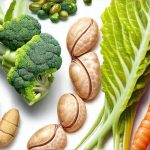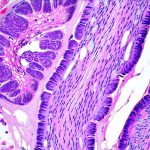The kidneys are remarkable organs, tirelessly working behind the scenes to filter waste products from our blood, maintain electrolyte balance, regulate blood pressure, and even stimulate red blood cell production. Often underestimated until problems arise, their efficient function is absolutely critical for overall health and wellbeing. Dietary choices play a huge role in supporting kidney health – not necessarily through ‘kidney-specific’ foods, but rather by incorporating nutrient-rich options that lessen the burden on these vital filters and promote optimal operation. Understanding how different foods impact kidney function can empower us to make informed decisions about our diet and proactively support long-term wellness.
Maintaining healthy kidneys isn’t always about avoiding certain foods (though some restrictions might be necessary for individuals with existing kidney conditions). It’s fundamentally about nourishing the body with elements that ease the filtering process, reduce inflammation, and provide essential nutrients without overtaxing these delicate organs. A holistic approach encompassing adequate hydration, a balanced diet rich in fruits, vegetables, and lean proteins, and mindful consumption of processed foods is key to safeguarding kidney health for years to come. This article will explore specific food groups and dietary strategies that can contribute positively to kidney filter function, offering practical insights for a healthier lifestyle. Consider incorporating more magnesium-rich foods into your diet to support optimal kidney function – learn more about magnesium’s role in urological health.
Dietary Strategies for Kidney Support
The cornerstone of kidney support through diet lies in moderation and balance. Overloading the kidneys with excessive protein, sodium, or phosphorus can strain their filtering capacity over time, potentially leading to damage. However, completely eliminating these nutrients isn’t the answer; rather, it’s about finding a sweet spot that allows for adequate intake without overwhelming the system. Hydration is paramount – water helps flush out toxins and ensures efficient kidney function. Aiming for at least eight glasses of water daily is generally recommended, but individual needs may vary based on activity level and climate.
Focusing on whole, unprocessed foods is also crucial. These foods are naturally lower in sodium, phosphorus, and often contain antioxidants that combat inflammation – a common factor contributing to kidney disease progression. Incorporating more plant-based foods like fruits and vegetables not only provides essential vitamins and minerals but also offers fiber, which aids digestion and reduces the workload on the kidneys. A diet rich in anti-inflammatory compounds can help protect the kidneys from damage and support their overall health. You may find that including diuretic vegetables supports kidney function; explore gentle kidney support through dietary choices.
Finally, mindful protein intake is vital. While protein is necessary for building and repairing tissues, excessive amounts can put a strain on kidney filters. Choosing lean protein sources like fish, poultry, or plant-based options such as lentils and beans helps minimize this burden. Individuals with pre-existing kidney conditions may need to work closely with a healthcare professional to determine appropriate protein intake levels based on their specific needs and stage of disease.
Foods Rich in Antioxidants
Antioxidants are compounds that protect cells from damage caused by free radicals – unstable molecules that contribute to inflammation and cellular aging. Chronic inflammation is linked to many chronic diseases, including kidney disease, so incorporating antioxidant-rich foods into your diet can be a proactive step towards protecting kidney health. Berries, particularly blueberries, cranberries, and raspberries, are excellent sources of antioxidants due to their high levels of anthocyanins.
Other notable antioxidant powerhouses include:
– Dark leafy greens like spinach and kale, packed with vitamins and minerals alongside potent antioxidants.
– Colorful fruits and vegetables such as bell peppers, tomatoes, and carrots, offering a range of beneficial compounds.
– Dark chocolate (in moderation!), containing flavonoids that have been shown to reduce inflammation.
Regular consumption of these foods can help neutralize free radicals, reduce oxidative stress on the kidneys, and support their long-term health. It’s important to note that antioxidants are best absorbed when consumed with a small amount of healthy fat, so pairing berries with nuts or seeds, for example, can enhance their benefits. To further bolster your kidney health through lifestyle adjustments, consider integrating active habits into your routine.
The Role of Potassium & Magnesium
Potassium and magnesium are essential electrolytes that play crucial roles in maintaining fluid balance, nerve function, and muscle contraction – all vital processes regulated by the kidneys. Maintaining appropriate levels of these minerals is critical for optimal kidney health, but imbalances (both too high or too low) can disrupt their function. Foods rich in potassium include bananas, sweet potatoes, avocados, and spinach. However, individuals with advanced kidney disease may need to monitor their potassium intake closely as impaired kidney function can lead to hyperkalemia (high potassium levels).
Magnesium is found abundantly in foods like dark leafy greens, nuts, seeds, whole grains, and beans. It’s involved in numerous enzymatic reactions within the body and plays a role in regulating blood pressure – a key factor in kidney health. Deficiencies in magnesium have been linked to increased risk of chronic diseases, including kidney disease. Incorporating magnesium-rich foods into your diet can help support overall health and potentially protect kidney function. You can also explore supporting kidney rejuvenation through dietary means.
Hydration & Fluid Intake Strategies
As previously mentioned, adequate hydration is arguably the most important dietary strategy for supporting kidney filter function. Water helps flush out toxins, prevents the formation of kidney stones, and ensures efficient filtration. However, simply drinking eight glasses of water isn’t always enough – individual fluid needs vary based on factors like activity level, climate, and overall health.
Here are a few strategies to optimize hydration:
1. Pay attention to your body’s signals of thirst and drink when you feel thirsty.
2. Include hydrating foods in your diet, such as watermelon, cucumbers, and celery.
3. Limit consumption of beverages that can dehydrate you, like excessive caffeine or alcohol.
It’s also important to note that certain medical conditions may require fluid restrictions, so it’s always best to consult with a healthcare professional to determine appropriate hydration levels for your individual needs. Monitoring urine color can be a useful indicator of hydration status – pale yellow urine generally indicates adequate hydration, while dark yellow or amber-colored urine suggests dehydration. For a holistic approach consider daily nutritional awareness for kidney support.
It is important to reiterate that this information is intended for general knowledge and informational purposes only, and does not constitute medical advice. It is essential to consult with a qualified healthcare professional for any health concerns or before making any decisions related to your health or treatment.





















